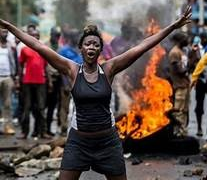The Assembly and Demonstration Bill is the proposed 2024 amendment to the Public Order Act (Cap. 56), sponsored by Mbeere North MP Hon. Ruku Geoffrey Kiringa. Submitted to Parliament on May 15, 2024, this amendment is fundamentally punitive, reactive, and retrogressive, and requires significant revisions to align with regional and international human rights standards.
This proposed amendment, dated April 25, 2024, fails to address critical contemporary issues in public management and necessary reforms. Legislative changes of this nature should be driven by data and harmonized with current global, regional, and national policies and laws.
At the global and regional level, Article 19 and 21 of the International Covenant on Civil and Political Rights (ICCPR) and Article 9 and 11 of the African Charter on Human and Peoples’ Rights (ACHPR) protect the right to peaceful assembly. Nationally, the right to assembly is safeguarded by Article 37 of the Constitution of Kenya, 2010. Any bill seeking to regulate assemblies must be rooted in these fundamental human rights guidelines.
The proposed 2024 amendment to the Public Order Act (Cap. 56) is seriously flawed. It fails to address critical issues such as:
- The contemporary challenges faced by Kenyan Assemblies.
- The current burdensome and unclear Notification Regime
- The lack of clear definitions for essential public order management
- The dangers of improper use of less lethal weapons like tear gas and batons, which have caused fatalities.
- Command responsibility and accountability measures as in the National Police Service Act and the Police Service Standing Orders.
- The role of police in inciting violence during Assemblies.
- Appropriate definition of a police officer to encompass anyone appointed by the Inspector General to manage public order.
- The necessity for civilian oversight during assemblies
- The unsatisfactory reporting measures for injuries and fatalities caused by police officers and more.
Instead, the bill introduces new charges such as cleaning fees, conditional assemblies as advised by a regulating officer, curtails the manner of assembly and the paraphernalia used, introduces extreme penalties and liabilities on organizers, and expands the allowable time frames for assemblies beyond reasonable limits.
As such, we assert that any amendments to the Public Order Act (Cap. 56) should:
- Clearly define terms and address the various forms of assemblies and protests.
- Streamline notice channels and establish effective dispute resolution mechanisms for public order management.
- Prioritize explicit guidelines for de-escalation protocols and incorporate dialogue during assembly preparations.
- Steer clear off imposing criminal sanctions in the context of laws governing assemblies
- Introduce sanctions only if they are not disproportionate or aimed at tightly controlling or penalizing organizers and conveners
- Be drafted and amended on the basis of broad and inclusive processes including dialogue and meaningful consultation with civil society
We strongly urge Parliament to adopt our detailed recommendations as submitted. Our goal is to ensure that Kenyans have clear, simple, and transparent laws governing public order management. Our position is unequivocal: unless this bill is revised, it should be rejected by Parliament.
The International Center for Non-profit Law has also done a detailed analysis of the Bill and given recommendations. Read more here:






